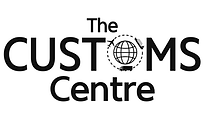
IncoTerms
How do you want to Ship?
Incoterms are a set of internationally recognised 3-letter trade terms. They describe the practical arrangements for the delivery of goods from sellers to buyers and allocate the obligations, costs and risks between the 2 parties. They are produced by the International Chamber of Commerce (ICC) and updated periodically to reflect changing trade practices.

Ex Works (EXW)
The seller makes the goods available at the seller's location, so the buyer can take over all the transportation costs and also bears the risks of bringing the goods to their final destination.

Free Carrier (FCA)
The seller is responsible for the delivery of goods to a named carrier. Responsibility for cost and risk then passes to the buyer.

Free Alongside Ship (FAS)
The seller must place the goods alongside the ship at the named UK port. The risk of loss or damage to the goods passes when the goods are alongside the ship, and the buyer bears all the costs from that moment on.


Free on Board (FOB)
The seller is responsible for all costs involved in the process up until the goods are loaded onto a vessel at the named UK port. Once goods have been loaded, the buyer is responsible for any costs and risks involved in the onward shipment.

Cost and Freight (CFR)
The seller must pay the costs and freight to bring the goods to the overseas port of destination. The buyer pays costs and takes risks from then on.

Cost, Insurance and Freight (CIF)
This is the same as CFR. However, the seller must also obtain and pay for the insurance.
The default level of insurance cover under CIF is Institute Cargo Clauses (C). This applies to both 2010 and 2020 Incoterms.


Carriage Paid To (CPT)
The seller delivers the goods to the carrier or another person nominated by the seller at an agreed place (if any such site is agreed between parties).
The seller must contract for and pay the costs of carriage necessary to bring the goods to the named place of destination.

Carrier and Insurance Paid to (CIP)
The seller pays for the carriage and insurance to the named overseas destination point, but risk passes when the goods are handed over to the first carrier.
The default level of insurance cover under CIP is Institute Cargo Clauses (A). This is a higher level of cover for CIP than Incoterms 2010, which specified Institute Cargo Clauses (C).

Delivered at Place Unloaded (DPU)
The exporter arranges carriage and delivery of the goods, which are ready for unloading at the named place. The seller is required to unload the goods at this destination.
After the goods’ arrival, the customs clearance in the importing country needs to be completed by the buyer at his own cost and risk, including payment of all customs duties and taxes.


Delivered At Place (DAP)
The seller delivers when the goods are placed at the disposal of the buyer on the arriving means of transport ready for unloading at the named place of destination.
The seller bears all risks involved in bringing the goods to the named place.

Delivered Duty Paid (DDP)
The seller is responsible for delivering the goods to the named place in the country of the buyer and pays all costs in bringing the goods to the destination.
